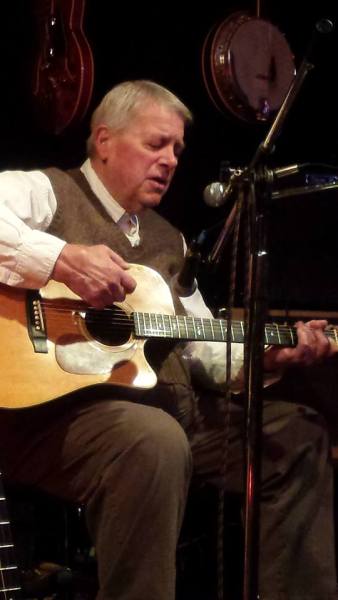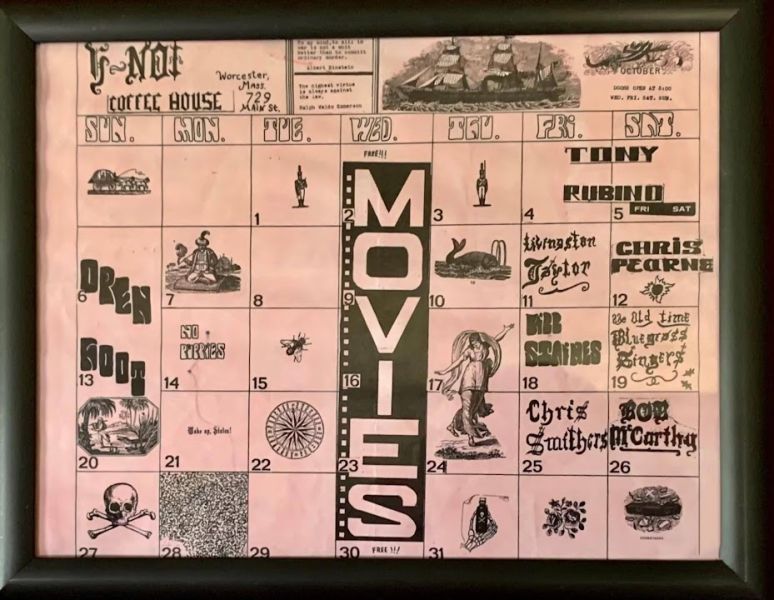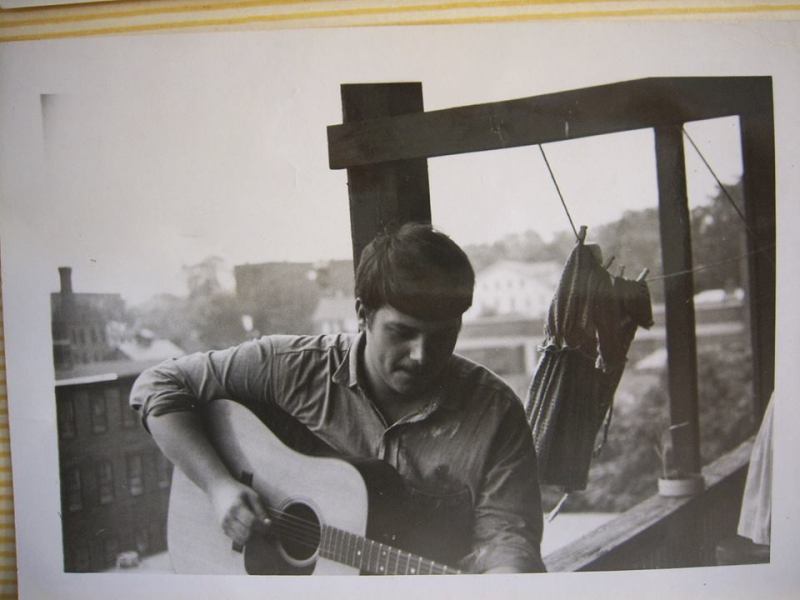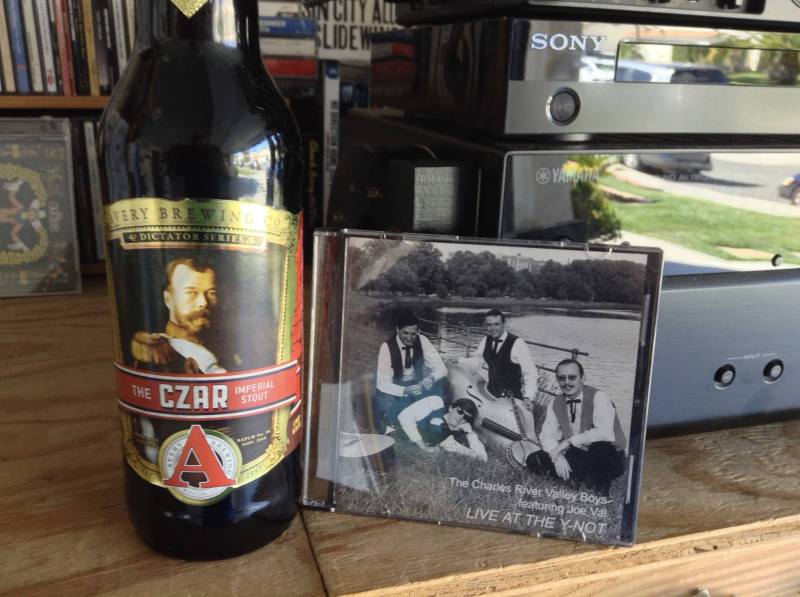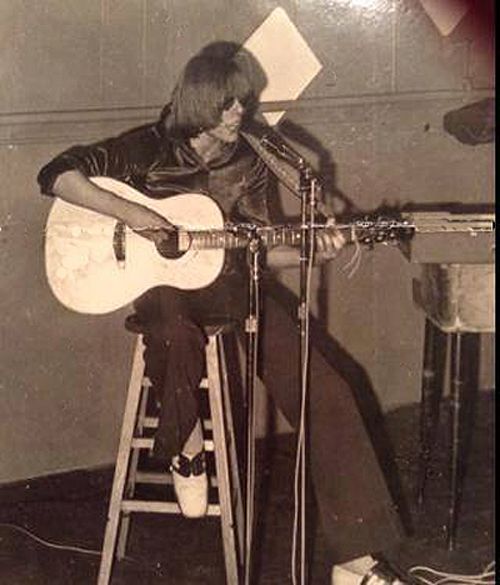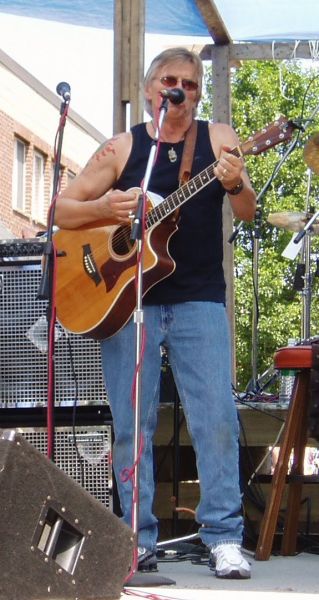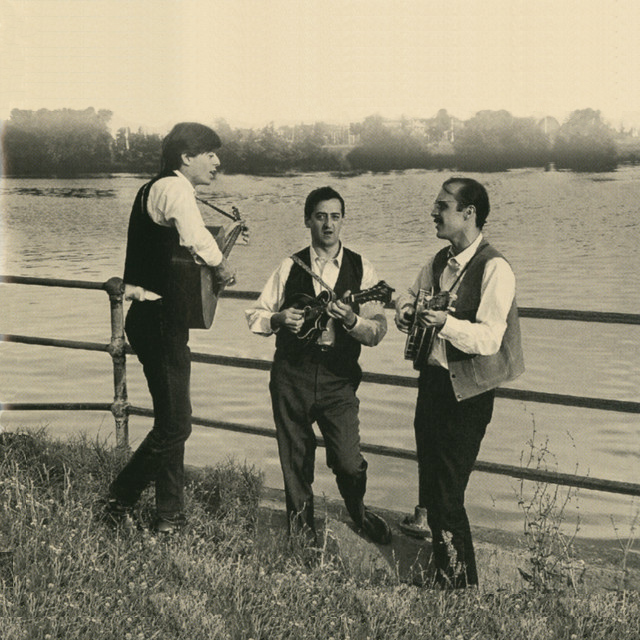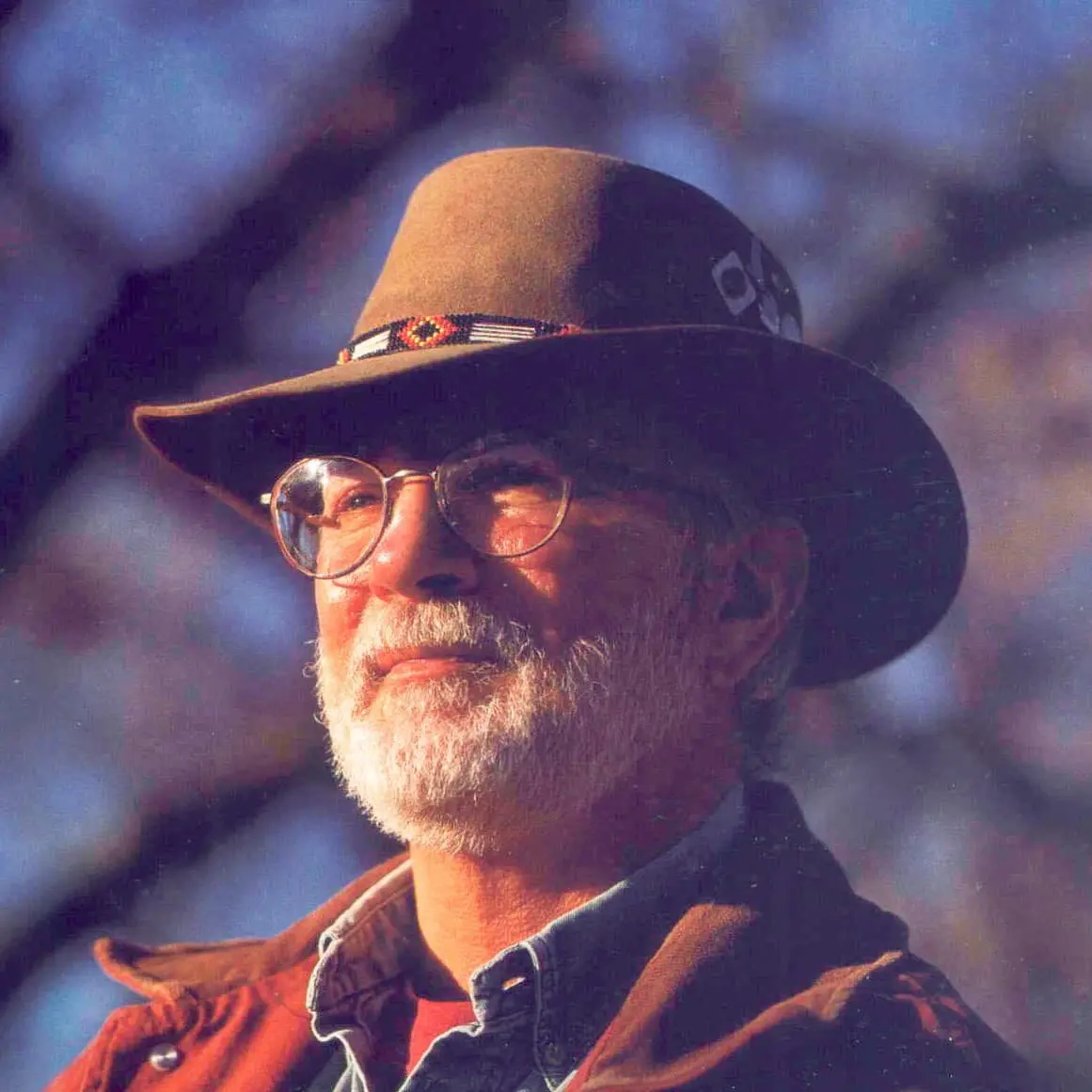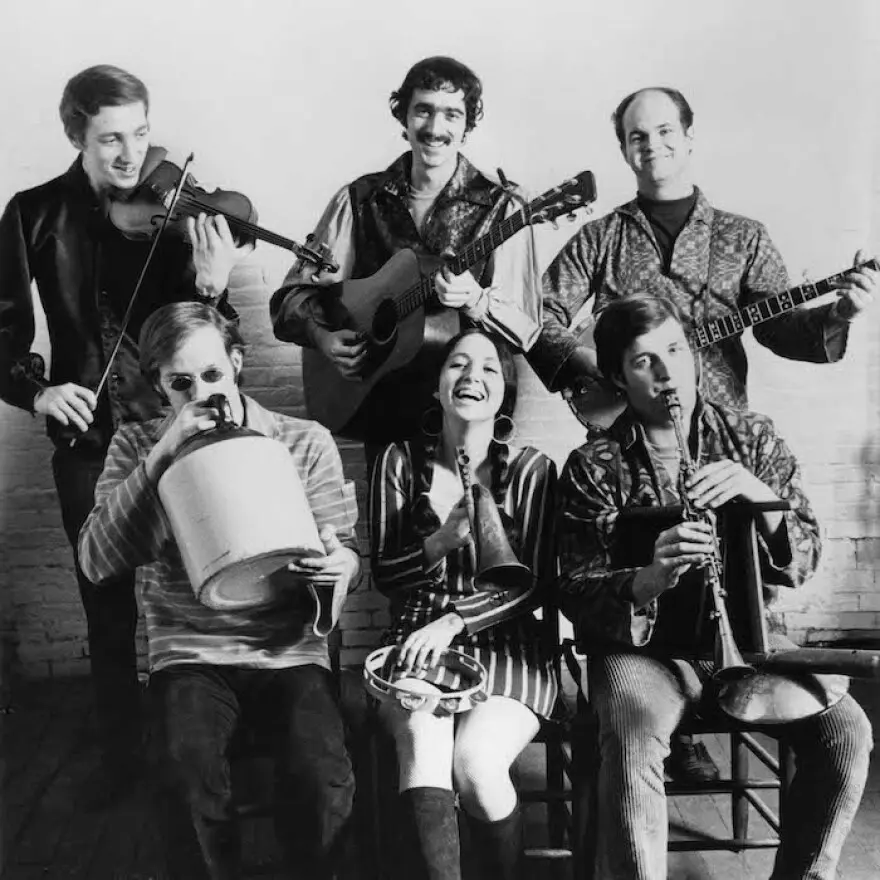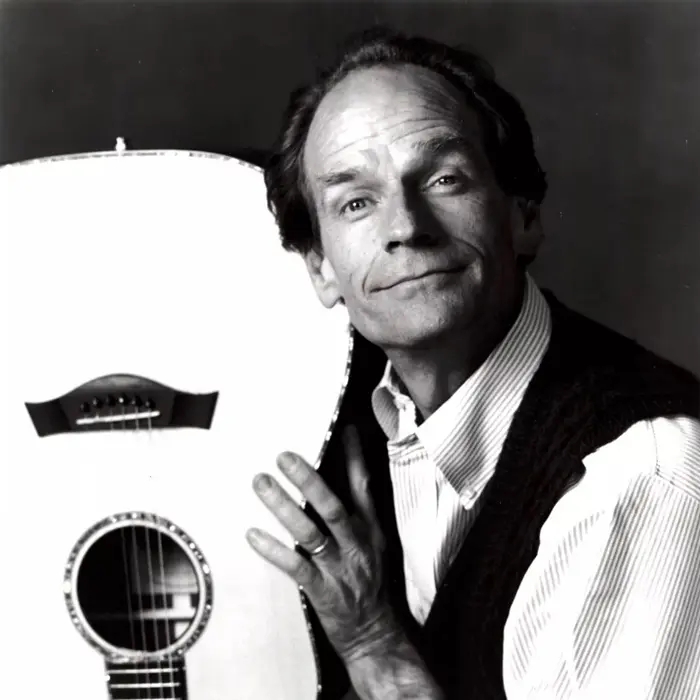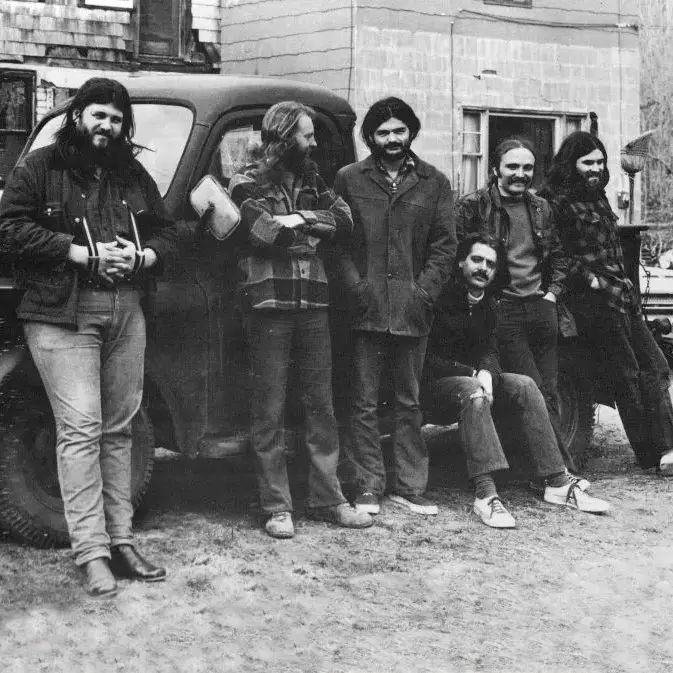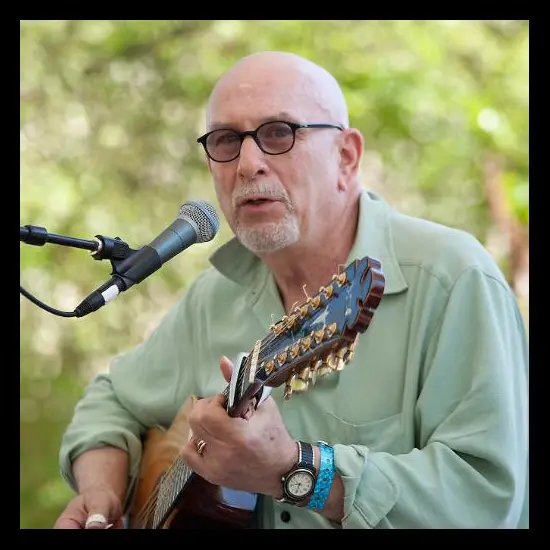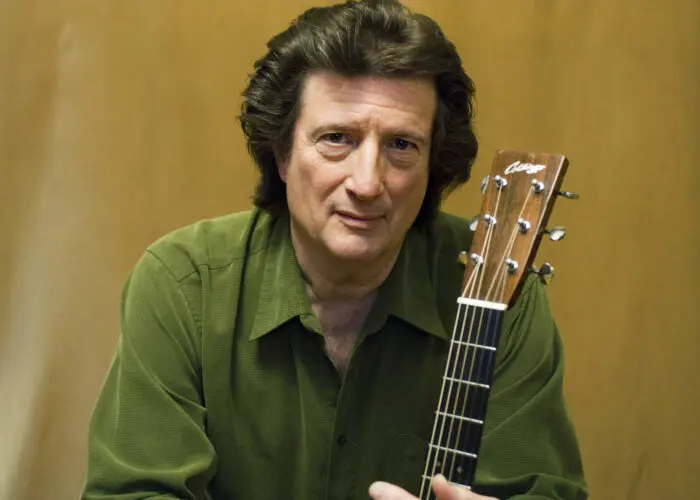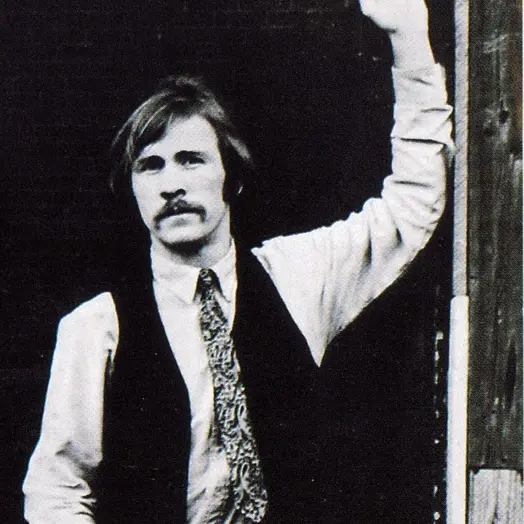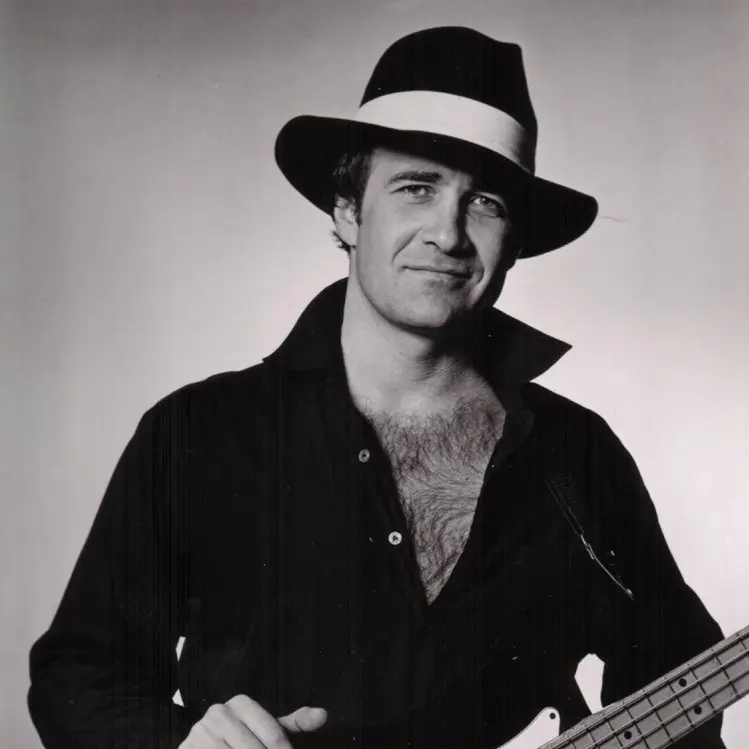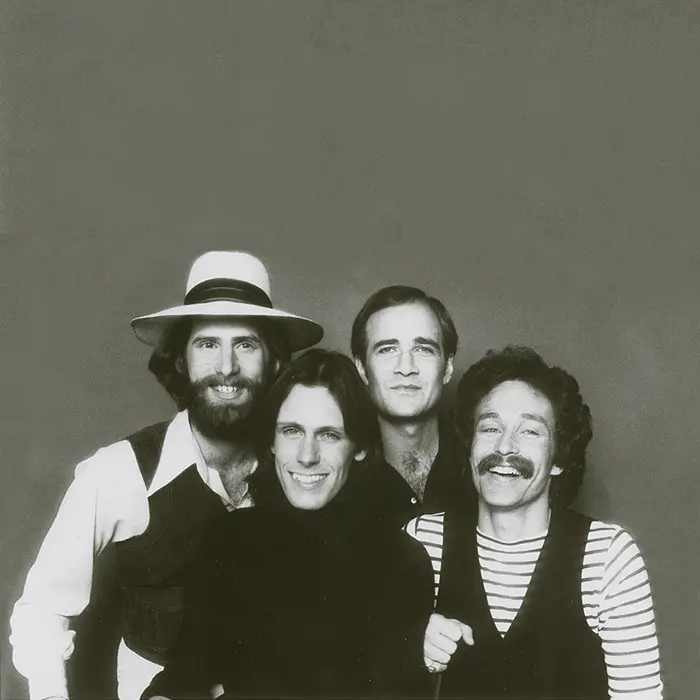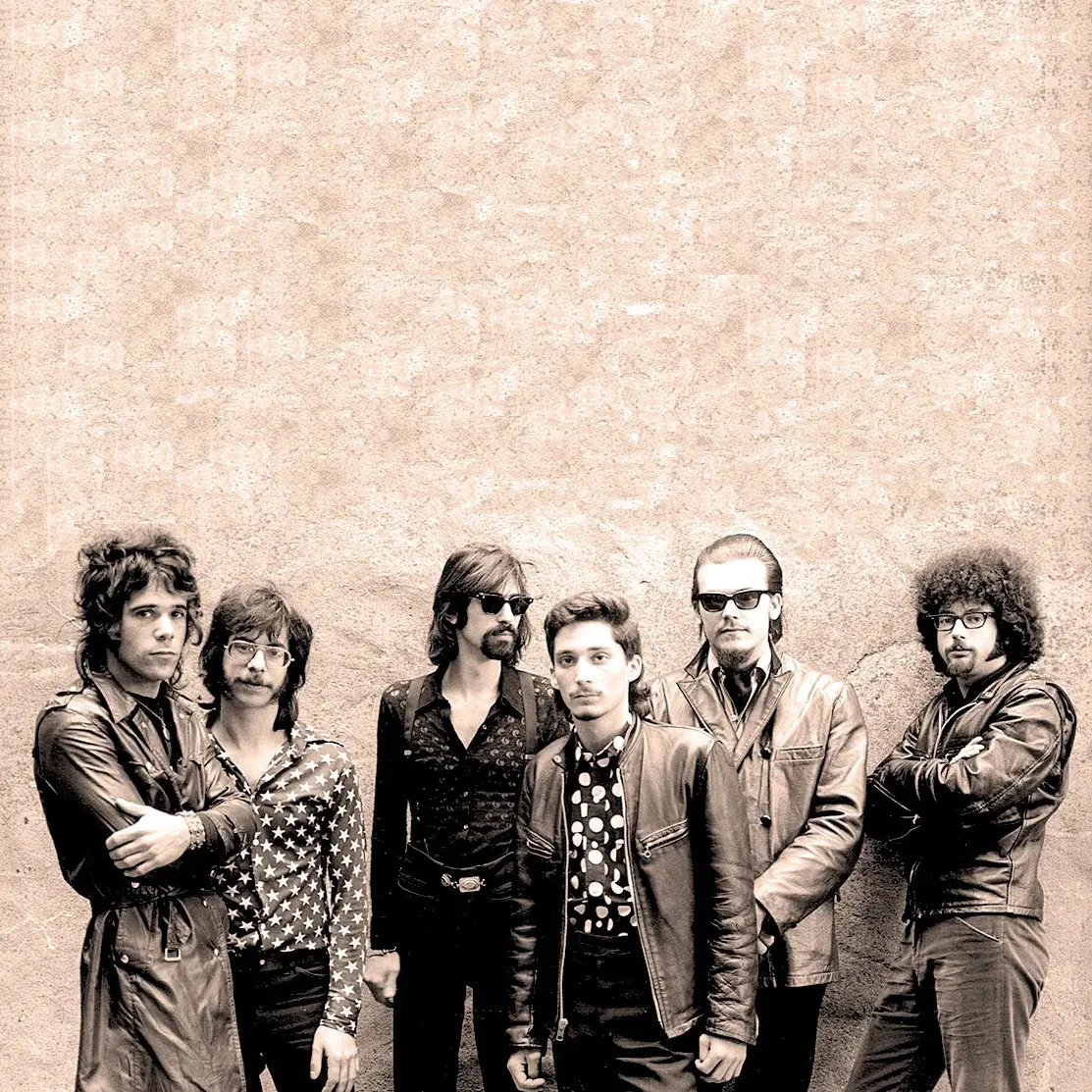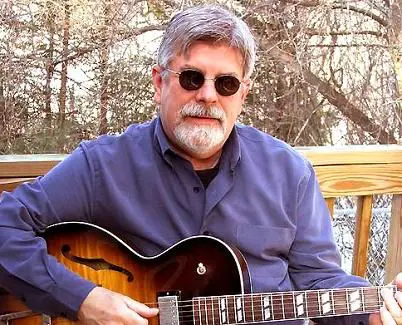Y-Not Coffeehouse
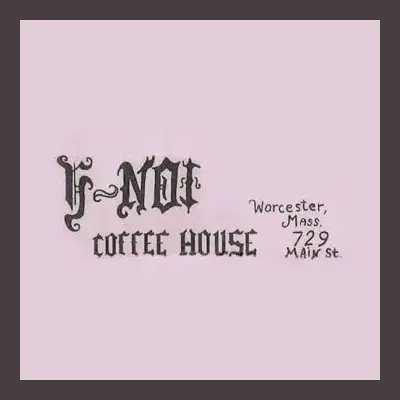
I’ll always remember singer-songwriter Norman Schell pulling up in front of the Y-Not Coffeehouse in his classic pink Cadillac Coupe de Ville during the summer of 1966. He was managing the trailblazing club that squatted at 729 Main Street, not far from the Worcester YMCA, the Y-Not Coffeehouse.
The Y-Not had been founded a year earlier by a group of Worcester Junior College students led by one Eugene Petit, who convinced the Worcester YMCA to fund a coffeehouse without religious interference or content censorship. Petit was named the first executive director and volunteers furnished the former storefront with a small stage, five cable-spool tables and an old church pew against the wall opposite the stage. It was not unusual for audiences to overflow onto the sidewalk.
OPEN HOOT NIGHT, FREE MOVIES, PERFORMANCES
Coffee and tea were available at the window of a small kitchen in the back. The large cellar served as the green room and as many as a dozen performers at a time could be heard tuning and practicing down there. Sunday was the popular Open Hoot Night, there were free movies every Wednesday and featured performances happened on Fridays and Saturdays.
Before the Y-Not, there had been no place for folk singers to play in the area except for the Silver Vanity – where saw Utah Phillips, Mary Travers and Jim Kweskin – which predated the Y-Not and closed after just a few months. “The Y-Not put Worcester on the map,” Norman says. He lived upstairs from the club and was able to offer his spare bedroom to performers passing through the heart of the Commonwealth.
JESSE FULLER, REVEREND GARY DAVIS, OTHER NOTABLE APPEARANCES
Lots of legends played the Y-Not from 1966 to 1971, including Jesse “The Lone Cat” Fuller who played his classic “San Francisco Bay Blues,” accompanying himself on guitar, harmonica, kazoo, high-hat and fotdella (his own invention, consisting of six bass piano strings strung vertically in an upright plywood box, each fitted with a pedal-operated, felt-tipped piano hammer). With his shoeless heel in a pivoting concave cradle, he could play in three keys. It’s been called a “foot-piano,” but he played it like a bass. On stage was a paper bag from which he sipped cheap wine. His favorite was MD 20/20. Poor all his life, he spent most of his professional career driving across America in his old station wagon, in which he usually slept.
Then there was the great blind blues and gospel icon Reverend Gary Davis, who did not drink, but did, like Jesse, sleep in his car. Also like Jesse, he was born into poverty. Fortunately, with the royalties from his original composition “Samson and Delilah (If I Had My Way)” – recorded by Peter, Paul, and Mary, The Grateful Dead, Shirley Manson and others – he was able to retire in relative comfort.
Among others who played at the Y-Not were Ramblin’ Jack Elliott, Eric Anderson, Dave Van Ronk, Tony “A.J.” Rubino, Bill Staines, Jean Ritchie, The Charles River Valley Boys, Jim Kweskin, Mitch Greenhill, Chris Smither, Livingston Taylor, Mike Seeger, Jaime Brockett, Spider John Koerner, Utah Philips, Chris Pearne, Leonda, The J. Geils Jug Band (with Danny Klein on excellent washtub bass), Rocky Rockwood, Roger Saloom, Carl Watanabe, Bob McCarthy, Jon Pousette-Dart, Norman, me and the unforgettable Patrick Sky.
“Patrick was a nice guy,” Norman says, harking back to when Sky had once come to Wormtown early enough before a gig to buy a Red Ryder BB gun, something he’d always wanted. That night, after a successful show, Norman threw a party. “There must have been 10 or 15 people there,” he says. “Well, we got drunk and high, and I was getting cozy with this girl Patrick had had his eye on, and suddenly this naked drunken Indian with a rifle in his hand kicked the bedroom door in.” The late, great Sky, half Irish and half Creek, reportedly held the rifle’s muzzle to Norman’s posterior, but did not pull the trigger. Norman smiled and concluded, “He was a sweet man.”
CLOSING, JOHN HENRY’S HOUSE, JOHN HENRY’S HAMMER
After running the Y-Not a couple years, Eugene Petit left to become a well-known WICN radio personality. Norman Schell moved to Congress Alley in 1968, then on to the Pioneer Valley to form Clean Living. Kendall Cowes and John Henry each took a turn at the Y-Not tiller until 1971, when the famed folk center finally followed the Silver Vanity beneath the waves that washed away the “Great Folk Revival.”
A talented folk singer himself, John Henry went on to erect a stage in his double parlor and present a sterling series of house concerts, commonly known as John Henry’s House. More recently, talented Worcester singer-songwriter Lydia Fortune and WICN’s Don DeMarch presented a popular open-mic night in the cellar of First Unitarian Church near Worcester’s Lincoln Square. They named it, in his honor, John Henry’s Hammer.
(by Stephen Martin)

